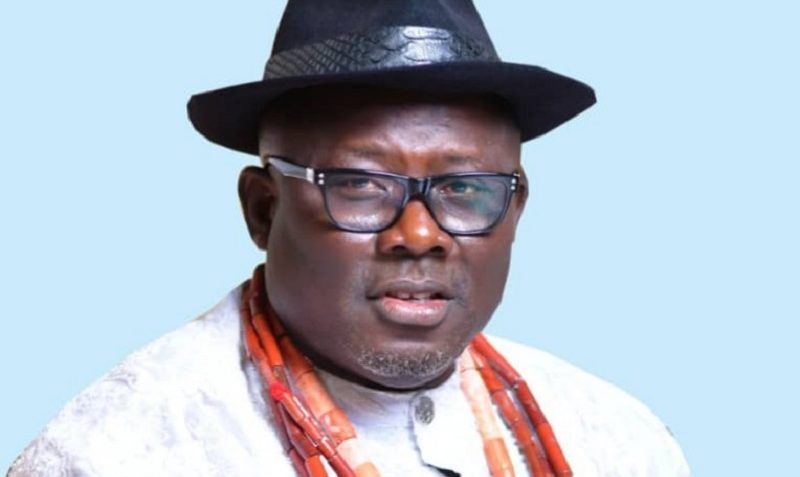The phenomenon of sitting governors switching political allegiances is a recurring theme in Nigerian politics, reflecting the dynamic and often fluid nature of the country’s political landscape. These defections, often driven by a complex interplay of personal ambition, political expediency, and shifting power dynamics, can significantly reshape the political terrain, impacting electoral outcomes and influencing policy decisions. The recent defection of Delta State Governor, Sheriff Oborevwori, from the Peoples Democratic Party (PDP) to the All Progressives Congress (APC) serves as the latest example of this trend, adding another chapter to the long history of party-switching by Nigerian governors.
Oborevwori’s move, while significant, is by no means unprecedented. Numerous governors throughout Nigeria’s political history have crossed party lines while still in office, often citing a variety of reasons for their decisions. These reasons can range from dissatisfaction with their current party’s direction to the allure of greater political influence or access to resources within a different party. Sometimes, these defections are motivated by personal disagreements with party leadership or a perceived lack of support for their agenda. In other cases, they may be driven by a desire to align with a party that is perceived as being more likely to secure victory in future elections. Whatever the motivating factors, these political realignments often have profound implications for the states they govern and the broader political landscape.
Among the notable examples of governors who have switched parties while in office is Aminu Tambuwal, the former governor of Sokoto State. Tambuwal’s political journey has seen him traverse both the PDP and the APC, demonstrating the fluidity of party affiliations in Nigerian politics. He initially left the PDP for the APC while serving as Speaker of the House of Representatives, only to later return to the PDP during his governorship, aiming for the presidential ticket – a bid he ultimately lost to Atiku Abubakar, another prominent figure who had also switched from the APC to the PDP. Sokoto State, in particular, has witnessed a series of gubernatorial party defections, with figures like Attahiru Bafarawa moving from the All Nigeria People’s Party (ANPP) to the PDP, and Aliyu Wamakko transitioning from the PDP to the APC.
Another prominent case is that of Abdulfatah Ahmed, the former governor of Kwara State. Ahmed’s political maneuvering saw him leave the PDP for the APC in 2013, only to return to the PDP in 2018. This back-and-forth movement underscores the strategic calculations that often underpin these decisions. It also highlights the sometimes-tenuous nature of party loyalty, where political affiliations can shift based on perceived advantages and evolving political circumstances.
The list of party-switching governors extends further, encompassing figures like Boni Haruna of Adamawa State, who defected from the PDP to the Action Congress (AC) during his tenure. Ikedi Ohakim, former governor of Imo State, moved from the Progressive Peoples Alliance to the PDP. Murtala Nyako, also of Adamawa State, transitioned from the APC to the PDP. Rochas Okorocha, another former Imo State governor, switched from the All Progressives Grand Alliance (APGA) to the APC. These cases illustrate the widespread nature of party defections across different states and political parties.
Further examples include Mahmuda Shinkafi of Zamfara State, who moved from the ANPP to the PDP, and Bello Matawalle, also of Zamfara State, who defected from the PDP to the APC. These instances, along with the numerous other cases across states like Benue, Ondo, Rivers, Cross River, Edo, Kano, Kebbi, and Jigawa, demonstrate a recurring pattern of political realignment among sitting governors. These defections can often trigger significant political realignments within the affected states, impacting the balance of power and potentially leading to periods of political instability.
In conclusion, the defection of Governor Oborevwori represents the latest instance in a long-standing trend of party-switching among Nigerian governors. These political maneuvers are often driven by a combination of personal ambition, strategic calculations, and the ever-shifting dynamics of Nigeria’s political landscape. While the reasons for these defections vary, they collectively underscore the fluidity of party affiliations and the complex interplay of factors that shape political allegiances in Nigeria. The impact of these defections can be far-reaching, influencing electoral outcomes, policy decisions, and the overall stability of the political system. As Nigerian politics continues to evolve, it is likely that this pattern of party-switching will persist, reflecting the ongoing struggle for power and influence within the nation’s dynamic political arena.


